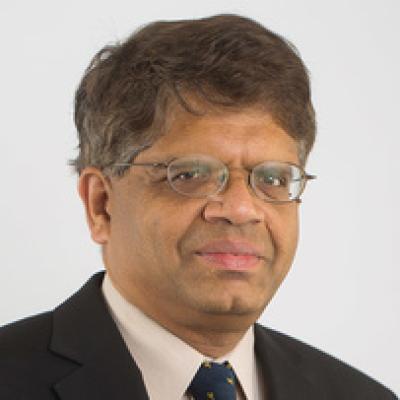CICS Distinguished Professor Ramesh Sitaraman Honored for Scientific Contributions as AAAS Fellow
Content

The American Association for the Advancement of Science (AAAS), the preeminent scientific institution in the United States, the world’s largest general scientific society, and publisher of the Science family of journals, has elected Manning College of Information and Computer Sciences Distinguished Professor Ramesh Sitaraman to the newest class of AAAS Fellows, among the most prestigious honors bestowed by the scientific community.
Sitaraman has spent his career helping to make the internet work in all the ways that many of us now take for granted. “By the late 1990s, the internet was being used for all sorts of things it wasn’t designed for—shopping, teleconferencing, streaming videos, etc.—and it wasn’t particularly reliable,” he says.
That many of us today don’t think twice about our ability to make payments online, join a Zoom meeting, or stream our favorite show is a testament to Sitaraman’s work, and the AAAS has honored him “for distinguished contributions to distributed systems and algorithms, for pioneering work in internet content delivery and scalable edge-computing services, and for broadening computing education.”
One of Sitaraman’s most significant achievements was his pioneering work on content delivery networks, or CDNs. These networks, comprising hundreds of thousands of “edge” servers worldwide, are responsible for delivering web content, videos and applications to billions of internet users. “The last thing you want is for web pages to load slowly, videos to buffer, or mobile apps to be unresponsive,” Sitaraman explains. “CDNs, with their sophisticated algorithms, efficiently move and store data on the internet, preventing these undesirable outcomes.” Since Sitaraman’s work on building the first CDNs a quarter-century ago, they have become the backbone of the modern internet, handling most internet traffic today.

Sitaraman’s work in content delivery led naturally to his role in building the first “edge computing” services a few years later. Edge computing speeds up internet applications by deploying them close to users. Instead of processing in centrally located servers—say, at Amazon’s corporate data center in Seattle—“computing at the edge” means distributing application processing to thousands of edge servers around the globe close to users. “The next frontier for our edge computing research is moving AI-powered applications to the edge, enabling billions of users to access intelligent services that are fast becoming integral to our daily lives,” says Sitaraman.
Perhaps the biggest internet challenge that Sitaraman sees is in sustainability. All those power-hungry servers spread all over the globe require a tremendous amount of energy, much of which is supplied by burning fossil fuels. “The holy grail is if you can run the internet entirely on renewables,” says Sitaraman, “but the sun is not always shining when you want to watch Netflix or access an AI-powered chatbot. Our goal is to redesign the internet so that, alongside speed and reliability, it is optimized for low-carbon usage.”
Sitaraman is as innovative in the classroom as in the lab. He has received numerous teaching commendations, such as the university’s prestigious Distinguished Teaching Award. He is known for having taught a generation of computer scientists to “think algorithmically” using a distinctive method of inquiry based on the Socratic method.
“It’s about breaking a complex problem down into simpler steps,” says Sitaraman, “and then figuring out how to do each one of those steps most efficiently. I see algorithmic thinking as an important component of education,” he continues, “not just in computer science, but in all the disciplines across campus.”
This year’s honorees also include Kumble Subbaswamy, UMass Amherst’s immediate former chancellor, University of Massachusetts interim senior vice president for academic affairs, student affairs and equity and a former professor of physics; Jennifer Normanly, professor and head of the Department of Biochemistry and Molecular Biology; Michelle Budig, professor of sociology and senior vice provost for faculty and academic affairs.
This article was originally published by the UMass Amherst Office of News and Media Relations.
